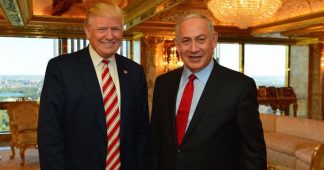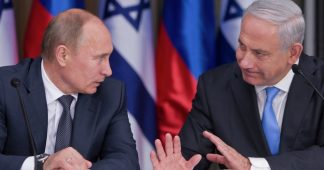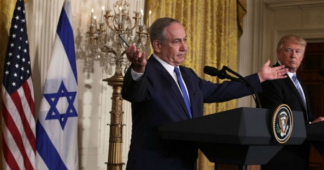Israel ‘alone in fight’ against Iran in Syria
April 11, 2018
“We know that we’re alone in this fight,” a very senior source in the Israeli defense establishment told Al-Monitor this week. “Still, we have no choice but to carry on.”
The April 4 phone call between Israeli Prime Minister Benjamin Netanyahu and US President Donald Trump made it clear to the Israeli leadership that “the friendliest president to Israel ever” has no plans to change his strategic decision to withdraw US forces from Syria and leave the arena to Russian President Vladimir Putin. Reportedly, Netanyahu did try to explain to Trump what the implications of such a withdrawal would be. But according to Israeli sources informed about the content of the call, while Trump expressed his understanding of the Israeli position, he made it clear to Netanyahu that he will not change his mind. The two men agreed that the United States would continue to grant Israel widespread international support, but the United States is unwilling to continue being bogged down in the Syrian quagmire. Trump apparently told Netanyahu that now that the Islamic State has been defeated and eliminated, the United States has no reason to remain there. At the same time, Trump promised Netanyahu that the United States would stand beside Israel and provide it with assistance if needed.
This was a major disappointment for Netanyahu. It undermined the idyllic romance between him and Trump, replacing it with the kind of tension that left a bitter taste. Netanyahu knows that Trump is his best card; when it comes to Israeli interests, he makes a point of saying all the right things. The problem is that the president does not always follow up on his statements with actions on the ground.










